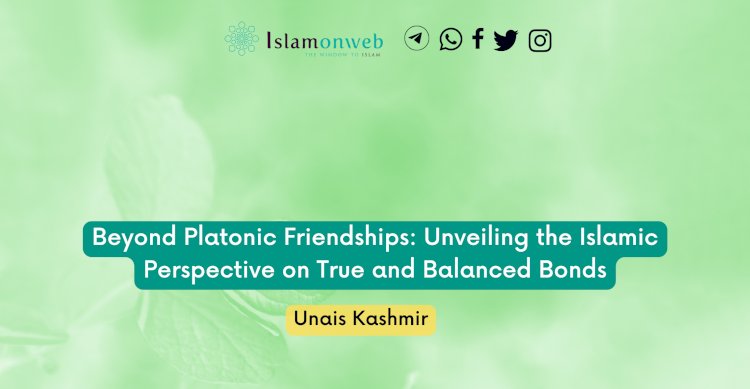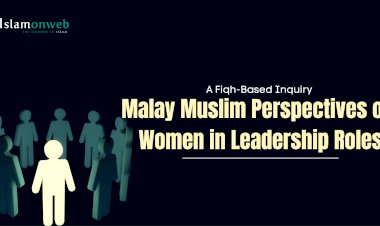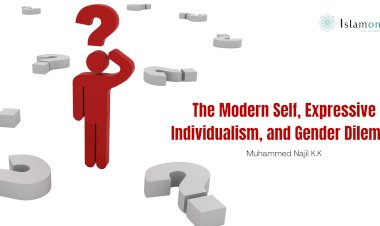Beyond Platonic Friendships: Unveiling the Islamic Perspective on True and Balanced Bonds
Religions in general and Islam in particular are depicted as antique and primitive in our society today when it comes to moral matters. Until recently, it was a universally accepted culture in our society that boys and girls should be segregated in classrooms in schools and colleges. However, even some religious believers are questioning their progressiveness if they come across silly questions like ‘If a man and a woman are together, will the sky collapse?’
Amidst the political renaissance in Europe, 'liberalism' emerged as a powerful political tool, which played a crucial role in the French Revolution raising several liberalist slogans throughout the revolution. However, over the years liberalism has undergone a transformation losing its actual political essence and emerging as what is now known as ‘neoliberalism’. This ideological shift seems to foster apathy and anarchy across the entire political, economic, social, and moral spheres. In fact, it has taken its roots deep in society by making western moral codes irrelevant that once had relevance in the modern world.
In the modern world, many theories exploring moral and ethical laws have emerged. Important among these is Immanuel Kant's (1724–1804) ‘theory of morality’ which revolves around the principle of categorical imperative. According to Kant, moral rules should be formed as per an individual’s attitude towards others in society, rather than focusing on how others should treat that person. This doctrine challenges the established religious moral values as it has developed on the same surface as European modernism, which was formed in opposition to the church. However, there were some shared values too put forth in the theory of Kant, but neoliberalism made such values irrelevant and commanded unlimited glory for the freedom of individuals.
Is morality a religious creation?
Religions are generally known as a bank of "dos" and "don'ts. Christianity, however, underwent a transformation during the conflicts between church and science, and assimilated modernity. So while drinking and fornication are deemed to be wrong in Christianity, one can still be considered a good Christian by occasionally keeping them in practice. The condition of other religions is almost the same where flexibility and modern value adaptation could be seen. But no assimilation is possible as there is no loophole for changes in the moral and ethical rules set forth by Islam. The Prophet's ﷺ saying; “No believer can become a Muslim by being an adulterer," describes this unwavering faith.
Islam, which has very few prohibitions, is projected as the religion with the most restrictive approaches. When we read the biblical narrative, it begins with the Adam-Eve incident. The first image that comes to anyone's mind about the Adam-Eve story is that God commanded them not to pick the fruit, and they picked the fruit in defiance of the command. If we read the same incident mentioned in the Holy Qur'an, a different picture could be seen. In the places where the creation of Adam (a.s) is mentioned in the Holy Qur'an, before any form of commandments, it says: “Do not go near the tree". It further goes, “You two dwell in Paradise. Eat and drink whatever you like”. Here, Allah the Almighty’s prohibition of Adam (a.s.) and Ḥawwāʾ (r.a.) was only after giving them a proper sense of freedom. It is because, Allah could have directly restricted them by asking not to go to the tree, but the reference of don’t go ‘near’ the tree implies that a certain degree of freedom was given to them. Therefore, the incident of Adam (a.s.) and Ḥawwāʾ (r.a.) marks the freedom and its limits were prescribed by Allah the Almighty.
From the Islamic point of view, the source and sanction of moral laws are vested in Allah. In Islam, Allah is the Creator, He is the Sustainer and only He knows the nature of creation. Thus, no one knows better than Him what laws or values are necessary for personal and inter-personal progress of a society. Even so, moral codes are not purely religious creations as it is a search for nature. That is why the Holy Qur'an describes good as 'Ma'roof' (known) and evil as 'Munkar' (unknown). Right is by nature known as good by all, and evil is the opposite. The setting of certain boundaries is essential to the observance of moral rules. Such limits of Allah that should not be transgressed are called 'Ḥududullāh' (limits of Allah). Adam's fruit is a symbol of these limits, or 'Ḥududullāh'. Although Allah has used this technical term to refer to conjugal relations, marriage, divorce, inheritance laws, etc., the Fuqahas (jurists) have used 'Ḥududullāh' to introduce all the legal limits in Islam. Islam posits that everything on earth is essentially 'pure' (tayyibah). The Messenger of Allah ﷺ said: 'Permissibility and prohibition have been made clear'. An act, or a thing, becomes forbidden when Allah makes it clear in the Qur'an or is found in prophetic Hadiths. However, the practice of inventing prohibitions by oneself and associating them with Allah and the Prophet ﷺ is unfortunately becoming widespread in the Muslim community these days. As a result, lawlessness is projected rather than law-abiding behavior and the feeds of Islam seem to be constricted even so it is expansive in nature.
A completely reactionary idea that liberalism creates in society is that the word 'morality' itself becomes vulgar. Islam has faced such situations before in its history. Mocking Prophet Shu'aib's (a.s.) services for economic morality, his people used to say, in our modern parlance, 'You are a great moralist'. "O my people! Consider if I stand on a clear proof from my Lord, and He has blessed me with a good provision from Him. I do not want you to do what I am forbidding you from doing. I only intend to reform to the best of my ability. My success comes only through Allah. In Him I trust, and to Him I turn (Holy Qur’an: 11/88) was his reply. See with how much self-confidence Prophet Shu’aib (a.s.) makes this announcement! However, 'morality' is often understood by religious believers themselves as the 'property' of religions and religious believers rather than as a culture that should be promoted and practiced by each individual and society. That is why, even when religions preach morality, many of the religious leaders are caught for moral violations. What a contrast between Prophet Shu'aib's (a.s.) declaration, "I do not intend to contradict myself with anything that is forbidden to you", and the current practices of religious morality!
Male-Female Friendship: An Islamic Perspective
Gender equality is the idea put forward by advocates of unrestricted male-female friendships. This strategy has led to the conclusion that those who oppose male-female friendships without boundaries and conditions represent sexism. Even if it is said that the practice of separating students in terms of gender in schools such as using different benches and chairs is not gender discrimination, it is gender separation which is quite difficult to persuade those who believe in the relative theory of values.
When it comes to talk about the values and culture that our society has preserved for ages, liberals will turn all the preservations of society over the age into a fiction. Liberalism has been trying to challenge the perceived sanctity of historically and socially sacred values. Adultery which has been viewed as a wrong practice with the moral values of society for years could be a better example of such values. However, in postmodern and apolitical context, values are seemingly becoming relative. Liberal domains perceive consensual adultery as acceptable, citing that values are of relative essence. There is no point in discussing the extent and limits of male and female intermingling with the proponents of the idea that consensual adultery is not wrong.
Islam, being the natural religion, beautifully presents the friendship between men and women in a verse in Surah al-Tawba of the Holy Qur'an saying: "The believers, both men and women, are allies of one another. They enjoin good, forbid evil, establish prayer, pay zakat, and obey Allah and His Messenger ﷺ. Surely Allah will show mercy to them. Allah is all-mighty and all-wise. (Holy Quran: 9/71). The criterion of friendship between believers is clear from this verse as it is to maintain righteousness, prevent wrongdoings, and ensure the offering of Zakat (charity) and Salat (prayer). But what Allah has clarified in the prior verses before these verses regarding the relation of hypocrites to each other is quite the opposite. He said: "The hypocrites, both men and women, are all alike: they encourage what is evil, forbid what is good, and withhold what is in their hands. They neglected Allah, so He neglected them. Surely the hypocrites are the rebellious." (Holy Qur’an: 9/67). Allah has used the term 'Awliya' (soul mates) to refer to the relationship that believing men and women maintain with each other. But the word 'Awliya' is omitted when referring to hypocrites. Allah the Almighty further reiterated that they would cultivate evil instead of cultivating good, prevent good deeds as much as possible and so on. Look at the distinction Allah has portrayed throughout these verses. This swapping between good and evil is the byproduct of liberal inclinations. The tendency to demarcate the intermingling of male and female students sitting together or shaking hands while offering greetings on our campuses as progressive and to label the greetings without physical intimacy as reactionary acts, should be analyzed in the light of the two aforementioned verses.
Allah introduces the male-female dichotomy as an example of His immense marvel. "By the night when it covers, and by the day when it appears, and by He who created the male and female, indeed, your efforts are diverse!'' (Holy Qur’an: 92/1-4). Although night and day are essentially indistinguishable phenomena, they two perform different functions within their nature. Thus, although men and women are of the same species, they were created with different natures and perform different dharma. In Islam, platonic friendship is viewed through the lens of recognizing and respecting the natural differences between both the genders.
In the Holy Qur'an, there is a chapter called Surah al-Nur which contains a plethora of moral instructions prescribed by Allah the Almighty. Among the major important instructions in the said chapter is the control of men and women in each other's eyes upon hitting anything that has not been encouraged in Islam. Allah said: "O Prophet! Tell the believing men to lower their gaze and guard their chastity. That is purer for them. Surely Allah is all-aware of what they do. (Holy Qur’an: 24/30-31). The toxic liberals who ridiculously ask the question "Why do you associate sitting close with sex?" are not unaware of the fallacy they are engaged with. These people are seemingly acting unfamiliar with the fact that when a male and female come together, sexual drive can act as a chemical catalyst. The prohibition of two people means that Islam does prohibit a situation where men and women can be together, not just two people. So, there is no need to give a secondary thought to whether the nightclubs organized by men and women together just for enjoyment are right or wrong.
There is a concept of society and morality and such concepts should not stand in the way of friendship spaces. Therefore, Allah, who commanded to control the eyes, immediately asks to keep the secret parts intact. Here, Allah does not associate appearance with sex, but the distance between the visible and the sexual drives depends on the nature of the male and female minds and the favorable conditions of the circumstance. Sigmund Freud formulated that there are three mental states of 'Id', 'Ego,’ and 'Superego'. Sexual desire arises in those who are in the 'Id' state of mind. Those who stand in 'Ego' make a comparison between good and bad and consider the pros and cons of situations. People with a 'super ego' mindset are the ones who can control themselves the best. The Holy Qur'an also mentions three types of mental states, referring nafsun ammara for the minds which lead to mistakes, nafsun lawwama for the mind who blames and take measure considerably, and nafsun mut’ma-inna for the mind which are calm in state of being and controls the heart rather than heart controlling the mind. Prophet Yusuf (a.s.) has stated that a man even during being in the state of nafsun mut’ma-inna can have some impact of nafsun ammara. Therefore, it is a gradual process to shift from one nafs to another only with the blessings of Allah the Almighty. "And I do not seek to free myself from blame, for indeed the soul is ever inclined to evil, except those shown mercy by my Lord. Surely my Lord is all-forgiving and most merciful." (Holy Qur’an: 12/53). These are the grounds upon which a significant proportion of moral rules in Islam are based on. However, the people with gender egalitarian mentality tend to often say that there should not be so many minds as we discussed, rather a single mind should be considered under all the circumstances.
The concept of sex itself is not filthy, rather when it comes in contact with something that has a bad nature makes it filthy or sinister. If so, there wouldn’t be any justification for creating the duality of male and female species in nature. Therefore, there are certain boundaries set forth by Allah to ensure that the social system or the ground of social morality is well-balanced. These boundaries are not fox sex, but within the boundary in the system, the practice of sex should be enacted. The boundary that Allah has assigned for this is sex. It is sex with which one can earn righteousness if it is through marriage. This is what the Messenger of Allah ﷺ said during one of his interactions with the companions. He further added that any form of extra-marital means is never appreciated to fulfill one's sexual drive. This is what the Holy Qur’an also said: Do not approach adultery (Holy Qur’an: 17/32) This verse puts forth the idea of vigilance in male-female relationships. This was further accentuated by the Messenger of Allah ﷺ when he said: 'when only two people, a man and a woman, are together, there will be a devil as a third person'. Allah said: “O believers! Do not follow the footsteps of Satan. Whoever follows Satan’s footsteps, then let them know that he surely bids all to immorality and wickedness. Had it not been for Allah’s grace and mercy upon you, none of you would have ever been purified. But Allah purifies whoever He wills. And Allah is All-Hearing, All-Knowing. (Holy Qur’an: 24/21)
These instructions in Surah al-Nur clearly outline the boundaries of male-female contact. When Allah commanded that men and women are to control their gaze, it indicated that the moral instructions go equally for both the genders. Similarly, it further clarified that men in general are weaker than women in controlling sexual thoughts and thus women are given some specific instructions for covering their body parts to ensure that they are safe from any form of harm from the part of men and neither they are causing any drive to bring in between male and female.
In Surah al-Nur, Allah described the etiquettes of visiting others' houses with specific details. He mentioned how to enter a house, where to eat and whose house to eat from. After giving a proper description of all these things, Allah said: "There is nothing wrong with you eating alone or together" (Holy Qur’an: 24/61) This verse is a testament that though in a house there come different people and both male and female gather together under any certain purpose, it has been taken into account by Allah the Almighty to take proper measures before entering the house and even after entering it, one should be precocious whom to meet and whom not to meet.
Friendships in Liberal Era
A new generation is growing up in our country with different ideas about relationships. They believe that it’s okay for men and women to be friends without any romantic involvement. Even some who are politically opposed to liberalism, have a perception that there is nothing wrong with non-sexual friendships. Love and marriage are becoming more widespread, and there’s a perception that being in love is essential for a man and a woman. This mindset justifies young romances, premarital chats, and meetings between prayer-keeping boys and scarf-wearing girls. However, we should reconsider this approach.
Nowadays, the process of marriage has changed into a multi-step process. Engagements happen during studies, Nikah takes place years later and reception feast happens even later. If we ponder over it to deduce whether or not it is in line with sharia law as well as as per the need of hour as it a new-age way of doing things, it would be impossible to say unconditionally to which extent, right or wrong would these new changes be. But if society becomes more accepting of non-sexual relationships after engagement, it is something worth seriously considering. The traditional religious pattern should not differ too much from the non-religious one, as some of these practices seem to align more with modern liberal ideas rather than Islamic moral codes.
Endnotes
1-Immanuel Kant's Moral Theory, Roger J. Sullivan, Cambridge University Press,1989, ISBN:9780521369084, 0521369088.
2- Christianity and the Laws of Conscience; An Introduction, Helen M. Alvare, Jeffrey B. Hammond, Cambridge University Press, 24 June 2021.
3- Ṣaḥīḥ al-Bukhārī 2475.
4- The Ego and the Id, Sigmund Freud, 7 May 2019, Skyhorse Publishing, ISBN:9781945186936, 1945186933.
5- SurahYusuf 53, Tafsir al-Razi.
6- Surah Al-Nur, Jāmiʿ al-bayān ʿan taʾwīl āy al-Qurʾān.
About the author
Unais Kashmir is a PG Research Scholar in Islamic Thoughts and Modern Trends in Islamic Studies at Darul Huda Islamic University, Chemmad. He currently works as a freelance content writer for 'The Muslim Vibe', an online academic journal based in London, UK.
Disclaimer
The views expressed in this article are the author’s own and do not necessarily mirror Islamonweb’s editorial stance.
























Leave A Comment